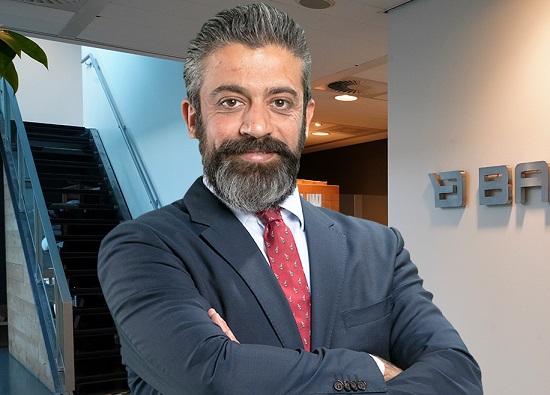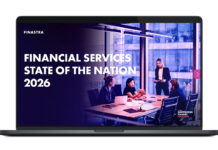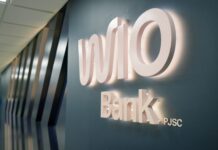How has the market for the digitization of banking and finance developed since the Saudi Central Bank’s launch of Fintech Saudi in April 2018?
We’re seeing an actual revolution taking place in the region – and specifically in Saudi Arabia – in terms of digitization. SAMA (Saudi Arabian Monetary Authority) is constantly introducing new regulations and initiatives to support the complete digitization of the financial sector. We have seen banks become digital champions in KSA while others are either digital-smart or undergoing a digital transformation. The entry of new players – for example neobanks and fintechs – are definitely a threat to a traditional bank’s market share, where only by digitizing will they be able to compete. Other factors come in place in the digital drive: COVID, customer preferences and needs, and the need to be ready for open banking. There is no bank in the Kingdom which does not currently have a digital initiative or project.
How is the Kingdom achieving its digital initiatives?
As I mentioned earlier, it’s happening everywhere. Banks, financial institutions, insurance companies, and lots of fintechs. Digitization is a vital component of Vision 2030, which the Saudi government and all the operating organizations in the Kingdom are actively working to achieve. We have seen the introduction of safe government services come to place as part of phase two of the country’s digital strategy. We are currently in phase three of the strategy, which aims at 2024 for a full e-government. All these initiatives will attract new digital initiatives, and financial services is the key player in all those initiatives.
How is Backbase helping the Kingdom meet its banking digitization aims?
We have moved a big part of the region’s operations to become locally based out of Riyadh, and we are growing a big team in the Kingdom. This will enable us to stay as close as possible to our clients and partners in the Kingdom, as well as enable a regular transfer of knowledge between Backbase and local talents.
Backbase’s role in the digital story is to modernize and orchestrate any financial institution’s customer touchpoints, transforming multiple siloed banking channels and legacy applications into a truly engaging banking experience. Being digital and up to the expectation which Vision 2030 aims for is not only about having a portal on an app. At the end of the day, when clients come to a bank to get the services they need, they are coming to the bank because they need financial help. That help will only be meaningful to the client if they get an engaging experience with his/her bank to achieve that financial stability he/she is looking for.
We at Backbase facilitate all that and enable financial institutions to become the trusted advisor for their clients while capturing all the important moments in their client’s lifecycle and offering him the help or support he needs at those stages.
What are the current digital finance trends in Saudi Arabia?
Well, there are a lot. We get to see a lot of services that are coming into the market like buy now, pay later, as well as different types of banking, like social banking, non-linear banking experiences, as well as data-driven banking and many more. Banks and financial institutions in the Kingdom fully understand the need to change the way they used to do banking and shift into more customized experiences (non-linear) and journeys for each and every customer driven by data analysis and social interaction. The future of banking is a combination of data-driven, AI initiatives combined with social interactions and IoT.
Currently few neobanks operate in Saudi Arabia – Hala, meem, and the recent approval of D360. Do you expect many more to start operations in the next two years?
Definitely, SAMA is really doing things in a great way. In 2018, when they launched Fintech Saudi, they launched the new era of innovation – resulting in new entrants to the market by neobanks and fintechs. We expect many more digital banks and neobanks and fintechs to enter the Saudi market as the market is growing rapidly along with the growth in the budgets which SAMA and the Saudi government have allocated for digitization across industries. This is really an exciting time for the people in the Kingdom and for us to be part of this nation-wide transformation.
The Saudi Central Bank released its open banking policy in January 2021 as part of the Financial Services Development program of Vision 2030. What does this mean for your business in the Kingdom?
Open banking has a lot of benefits to the Saudi market – as well to all the banks operating in Saudi Arabia – and we see that the Saudi open banking system is a very stable, resilient, and trusted banking sector, which can be attributed to SAMA’s regulations and the supervisory role that it has over the banking and the payment space.
So, what we see is that open banking can really support Saudi’s financial sectors and the development of the broad range of benefits associated with it. Open banking really leads to direct innovation. It leads to enhancing the opportunities to develop products and services, some that might be done in-house and some of them that will definitely require a key digital player to offer that.
So, it definitely increases the value propositions and the revenue streams for all these banks. Having said all this, open banking is definitely an opportunity, it’s an opportunity for the Saudi banking sector, as well as for Backbase, because this is exactly where we want to be.
At the end, what we are now seeing in Saudi Arabia are all these amazing trends that are taking place in the market, and we see that continuing for the next ten years at minimum. We wish the Saudi government and SAMA all the best in achieving the vision, and we assure them that we are here to support and expedite the journey for them.











